Disembarking the ferry I entered the third country on my way — Estonia. Now the counter will tick faster, as the Baltic republics are quite tiny pieces of land.
I must admit that I have not done the homework and my knowledge about these countries is very limited. The less you know, the more pleasure it gives when you enter a new, nice place. Tallinn is one of these. It looks just brilliant with it's old, beautiful buildings surrounded by city walls and especially with smiling, friendly people. The downside is that it got flooded by tourists, mostly coming from the ferries, exactly as I did. I considered an overnight stay in some of the hostels, what could be a good option given that the next day was going to be official holiday celebrating coming of the summer — Jaanipäev. Finally I decided to go. Perhaps that had been a big mistake, given the fact that the holiday itself I spent in the tent, waiting for the rains and wind to go away, absolutely alone.
The road going west from Tallinn, being a part of Euro Velo route #1, is accompanied with a brand new flat asphalt bike path. At least for about 15km, where it ends abruptly. After hilly Finland the flatness of Estonia is relaxing. There was a plateau on my way, of impressive altitude of fifty-something meters, marked by warning signs at both ends. I guess if Finns had decided to mark such up and downhills with warnings, they would have spent entire yearly budget on producing and setting up these signs. But what was usual there, is exceptional here, and should be marked.
Estonian language, a far relative of Finnish, sounds to me as familiar as Chinese. I was surprised then to understand many conversations on the street or in shops. These were, of course, in Russian (which I actually don't know, but the similarity to Polish makes it understandable). Far more popular in Estonia than I had expected. In places like Paldiski, which used to be top secret city and a base for Soviet nuclear submarines, Russian dominates.
In Haapsalu I met two Russian boys riding together on a single bicycle. They explained me that Estonians didn't like Russians, and often there were problems with local nationalists. Their friend, who showed up for a moment with his right arm on a sling, seemed to be an example. I'm not sure how much I should believe those kids, but surely there could be much of antipathy between these nations. Just have a look at the recent history. Otherwise Haapsalu looks just great. A curvy promenade with cafés overlooking the bay, together with old wooden railway station being a museum nowadays and with wooden houses here and there — this sums up to be a calm, beautiful place.
Another funny mistake was that I left Haapsalu around 9PM, which meant that the main mosquito onslaught had already begun. Cycling south I realized that I was just cutting into the middle of the biggest swamp in the country, with the next elevated area being 50km in front of me. I wasn't eager to stop, think and being eaten alive. Fortunately, in the middle of the way there was a roadside shop. I took it's small lawn for myself that night, with a plan to move away long before the store opens and anyone comes there. That proved to be impossible. Local drunkards had been already waiting there for their first morning beer for about two hours before the clerk came and opened the door.
As the national holiday was on Thursday, that meant a long weekend for many Estonians. Five of them decided to go on a cycling tour around most of their country. First they had overtaken me, but quickly I found them at a bus stop shelter. These were the first bike travellers I had met, who had been going in the same direction as me. Our routes diverged however, as they decided to camp in some remote area deep into nearby marshland.
Passing quickly through Pärnu, which is a beautiful but tourist resort, I was looking for a camping. Few days without a shower and lack of clean clothes made me think of finding some basic facilities; running water, at least. This way I found a campsite at the base of tiny peninsula of Tahkuranna. The campsite proved to be abandoned and water cut off, but that was also a place of another interesting meeting. A Czech called Martin had placed his tent there. He had been crossing Baltic states alone in his tiny car. When two lone travellers meet, there is always something to talk about, and in addition to that Martin had a bottle of gin.
Of course the next day, while I cycled along the coast, there were countless signs pointing to open campsites with running water, beach, wifi and stuff. But that was my fifth day there and the time to say Estonia goodbye. After crossing the virtual border I entered Latvia.
Estonia was a good experience. Flat, easy to cycle and even easier to camp (just place the tent anywhere), and significantly cheaper than Finland. I also saw less burden of the communist era than I had expected. As for the people, my contact with them was totally positive, like it had been before. This, hopefully, will not change on the way.

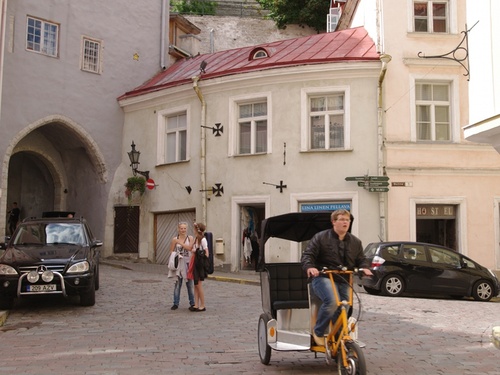
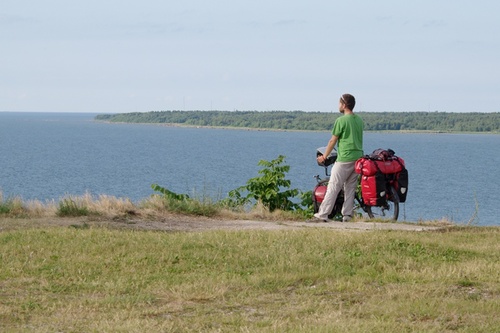
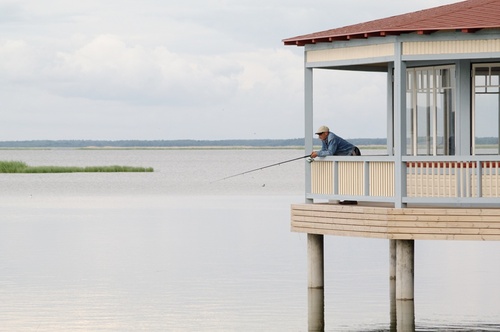
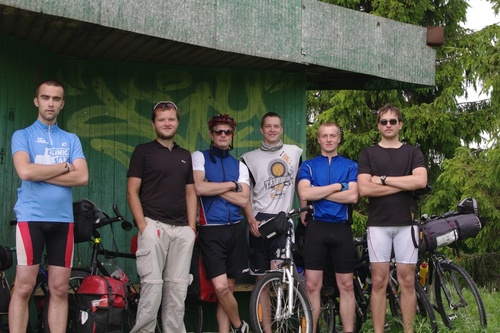
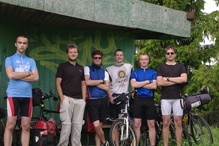
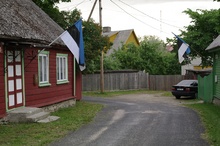
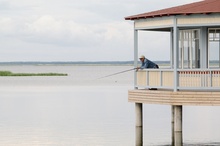
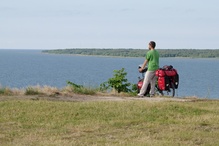
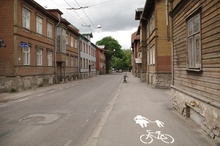
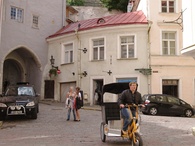
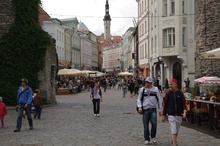
Comments:
ciman
Jak sobie dajesz radę z zasilaniem?
Antydebil
-estoński ma bardzo silne wpływy niemieckie, a fiński nie
-estoński jest twardszy
W Paldiski rosyjski dominuje, ponieważ większość mieszkanców stanowią Rosjanie, przywiezieni tam za ZSRR. 30% mieszkańców tam to Ruscy, którzy są bardzo nielubiani, nawieziono ich za ZSRR.